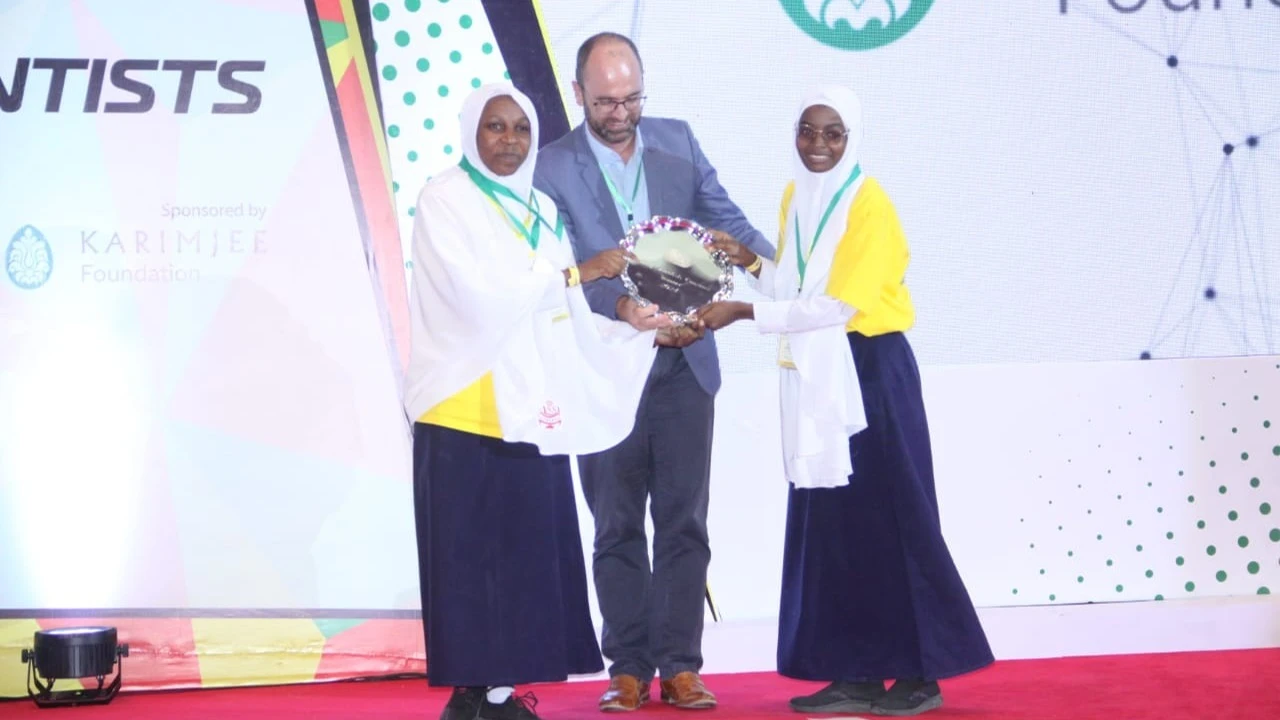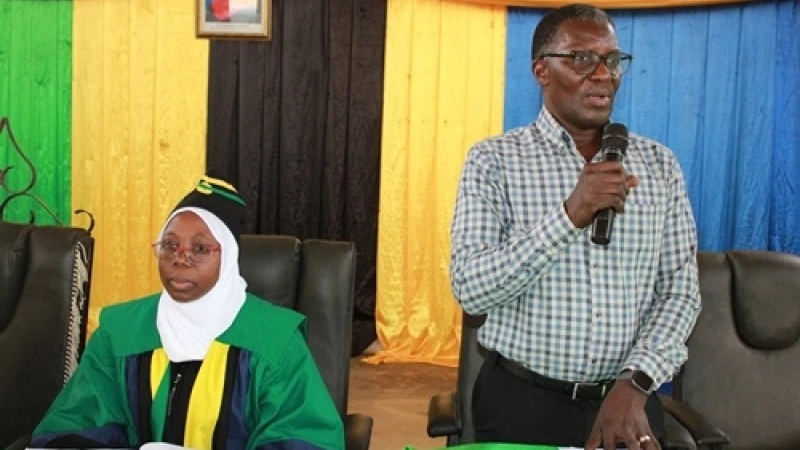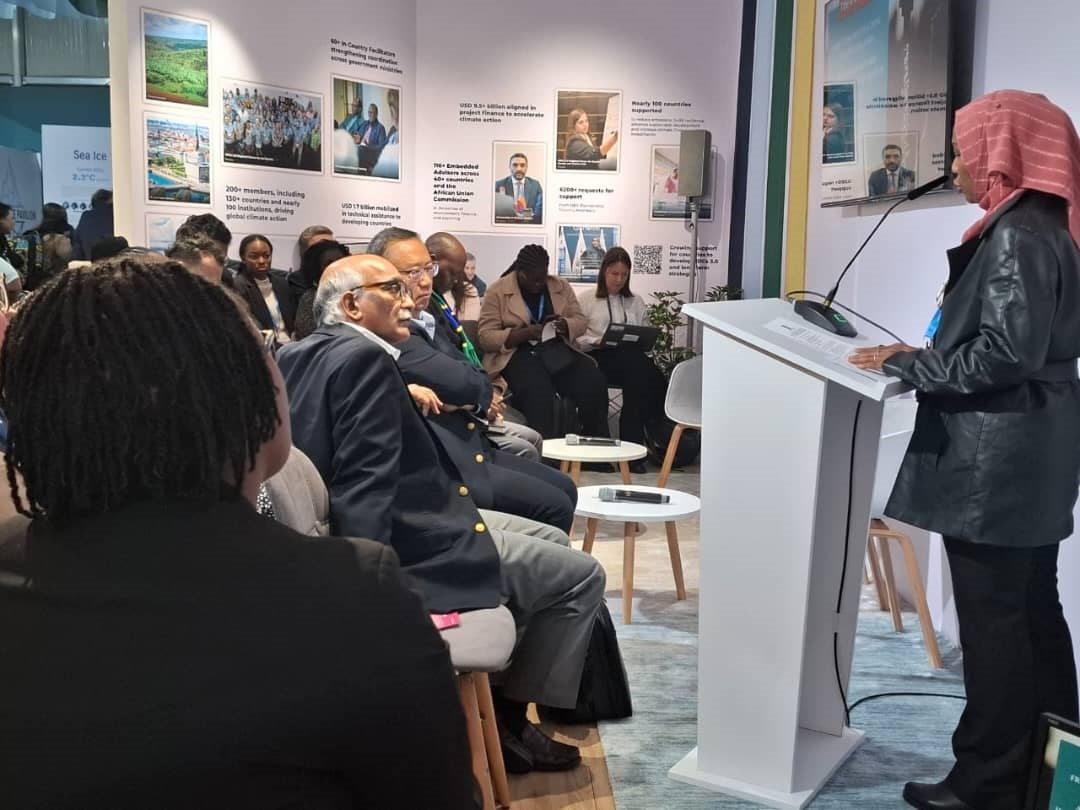Zanzibar students win top prize for innovation

At the 2024 Young Scientists Tanzania (YST) National Exhibition, Salha Shamim Khamis and Ramlat Hamad Abdulla, students from Lumumba Secondary School in Zanzibar, were celebrated for their innovative project, “Sustainable Seaweed Farming and Coral Reef Conservation,” which earned them the top prize.
Their project stood out among entries from across the nation by offering a creative solution to critical environmental and economic challenges. It focused on preserving ecosystems while enhancing the livelihoods of local communities.
Abdulla explained that their inspiration stemmed from witnessing the environmental damage caused by traditional seaweed farming practices in Zanzibar. For over three decades, seaweed farming has been a vital source of income for many Zanzibaris. However, the widespread overharvesting of seaweed, along with the use of pegs and ropes for cultivation, has caused significant environmental degradation, particularly the destruction of mangroves that are crucial to Zanzibar's coastal ecosystems.
This degradation threatens local biodiversity and the communities that rely on these resources. Additionally, seaweed production has been steadily declining due to the adverse effects of climate change. Abdulla warned that if current practices are not addressed, many mangrove areas could become barren "sea deserts" within the next decade.
“These ecosystems are essential, not only for marine biodiversity but also for the livelihoods of local communities,” she emphasized.
The students’ project proposes a ground-breaking solution: integrating coral reefs into seaweed farming. By incorporating corals into the cultivation process, Khamis and Abdulla believe they can help protect mangrove forests while increasing farmers’ incomes. Coral reefs naturally boost fish populations in nearby waters, allowing seaweed farmers to engage in both seaweed farming and fishing, providing a dual benefit.
“This combination of seaweed farming and fishing supports environmental sustainability while also driving economic growth,” Abdulla explained.
Khamis echoed her partner’s sentiments, emphasizing the transformative effect of coral reefs. “This approach would greatly reduce the need for farmers to cut down mangroves for pegs, thus preserving the forests and promoting biodiversity conservation,” she added.
Additionally, coral reefs promote healthier seaweed growth by improving water quality and maintaining ecological balance, which has the potential to increase productivity and support essential ecosystem services.
Both Khamis and Abdulla stressed that the success of their initiative relies on a collaborative approach. “Protecting coral areas is key to ensuring the long-term sustainability of these ecosystems,” they said, urging the government to raise awareness within local communities and invest in coral nurseries to help transition to coral-based farming methods.
Their project has the potential to revolutionize seaweed farming in Zanzibar by balancing economic productivity with environmental preservation. By integrating coral reefs into farming practices, farmers can protect mangroves, improve seaweed yields, and support marine biodiversity, fostering a sustainable future for the community.
During the exhibition, YST Board Chairman Prof. Yunus Mgaya praised the projects for their focus on practical solutions in areas such as environmental conservation, agricultural storage, human health, and energy optimization. He underscored the importance of investing in science education, particularly in an era of rapid technological advancement.
“The future development of our country depends on science,” he remarked.
Dr. Gozbert Kamugisha, YST Co-founder, reflected on the foundation's 14-year commitment to nurturing scientific talent among Tanzania’s secondary school students. He highlighted how YST has provided young people with opportunities to develop practical solutions to local challenges, contributing to the country’s broader development goals.
At the event, the Minister of State for Planning and Investment reaffirmed the government’s commitment to supporting YST’s mission of fostering a culture of science among students. He emphasized that science and technology are essential for Tanzania's development and industrialization efforts.
“Our national development vision has identified science and technology as core drivers of progress. Initiatives like YST contribute to this agenda,” he explained. He predicted that by next year, 50 percent of Tanzania’s population will have attained secondary education, a milestone expected to significantly boost the country’s economic and developmental objectives.
“This initiative is integral to the government's vision for the future. It fosters innovation from an early age, and we are committed to supporting it,” he added.
The Minister hailed Khamis and Abdulla’s project as a shining example of how scientific innovation can address local environmental challenges while promoting sustainable economic growth. Their work is not only a testament to the power of science but also a beacon of hope for Zanzibar’s coastal ecosystems and the communities that depend on them.
Top Headlines
© 2024 IPPMEDIA.COM. ALL RIGHTS RESERVED

























